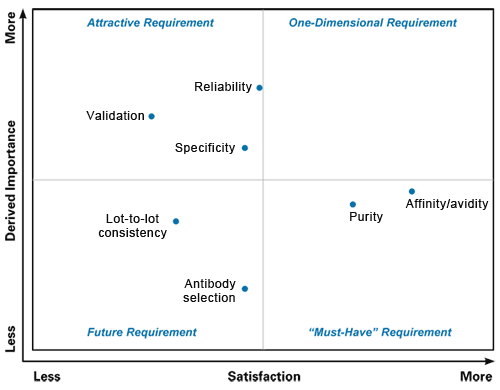What does an epigenetic researcher want? I thought you’d never ask.


Off the cuff, you’d probably say no. And yet, your web-based email provider does that EVERY TIME you send an email. (When I asked one person whether or not she would be OK with it, she said it would be an egregious violation of privacy. When I told her to take a look at the sidebar on her next email—and that it was already happening—she said “Oh.”) And it’s a good thing that Starbucks didn’t test their coffee concept by asking people whether or not they would be willing to spend $3 for a cup of coffee. Howard Shulz would have gone into plastics instead. And how about this one—would you be willing to pay a lot of money online for other people’s junk? (eBay!)
Sometimes, it’s a good idea to do an end-run around what customers are saying they want and dig deeper into what they really want—and what they are willing to pay for. Derived Importance (vs. Stated Importance) calculates the relationship between what the customer is saying he or she likes against overall customer satisfaction.
In our 2009 report Exploring the Epigenetics Market: Opportunities for Product Placement and Innovation, we calculated the derived importance of chIP-Grade antibody features and the commensurate level of satisfaction they provide. Take a look!
Satisfaction Levels with chIP-Grade Antibody Features





